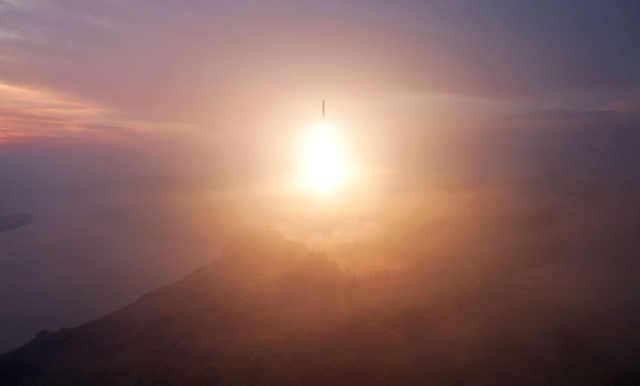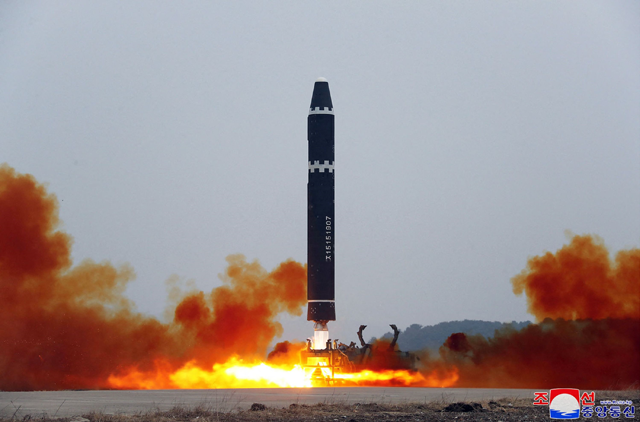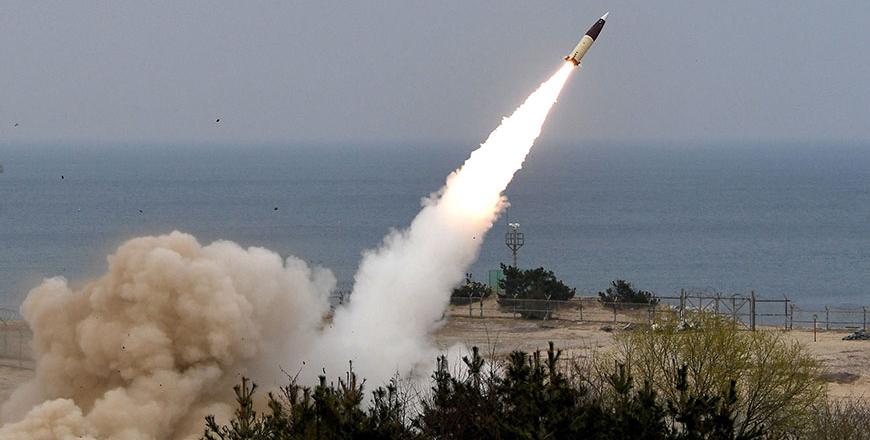SEOUL — North Korea said Thursday it had test-fired one of its newest and most powerful missiles to boost its nuclear deterrent, Kim Jong Un's first weapons test since being accused of sending soldiers to Russia.
Seoul had warned a day earlier that the nuclear-armed North was preparing to test-fire another intercontinental ballistic missile (ICBM) or even conduct a nuclear test ahead of next week's US elections.
The launch came just hours after US and South Korean defence chiefs called on Pyongyang to withdraw its troops from Russia, warning that North Korean soldiers in Russian uniforms were being deployed for possible action against Ukraine.
"The initial judgment so far is that [Pyongyang]may have test-fired a new solid-propelled long-range ballistic missile," Seoul's military said, adding the missile had flown around 1,000 kilometres after being fired on a lofted trajectory -- meaning up, not out.
Developing advanced solid-fuel missiles -- which are quicker to launch and harder to detect and destroy in advance -- has long been a goal for Kim.
North Korea defended the sanctions-busting launch, calling it "an appropriate military action that fully meets the purpose of informing the rivals... of our counteraction will," the official Korean Central News Agency reported Kim as saying.
The test "updated the recent records of the strategic missile capability," of North Korea, it said, with Kim vowing his country "will never change its line of bolstering up its nuclear forces".
Tokyo said that the "ICBM-class" missile had flown for longer than any other previously tested by the North, being airborne for about 86 minutes and hitting altitudes of 7,000 kilometres.
"We estimate that its flying altitude was the highest we have seen," Japanese defence minister Gen Nakatani told reporters.
Washington slammed the launch as "a flagrant violation of multiple UN Security Council resolutions", National Security Council spokesman Sean Savett said in a statement.
Seoul, Washington and Tokyo -- key regional security allies -- will respond with joint military drills involving US strategic assets, Seoul said.
South Korean President Yook Suk Yeol also said the country would "designate new independent sanctions" on the North and work with partners and the UN to penalise Pyongyang's "habitual violations of Security Council resolutions."
Diverting attention?
North Korea's missile launch "seems to have been carried out to divert attention from international criticism of its troop deployment," Yang Moo-jin, president of the University of North Korean Studies in Seoul, told AFP.
Seoul has long accused the nuclear-armed North of sending weapons to help Moscow fight Kyiv and alleged that Pyongyang has moved to deploy soldiers en mass in the wake of Kim Jong Un's signing of a mutual defence deal with Russian President Vladimir Putin in June.
The troop deployment poses a "significant security threat", Seoul has said, with US Defense Secretary Lloyd Austin on Wednesday calling on the North to pull their troops out.
The duration and altitude of Thursday's missile launch indicate the North "tried to evaluate whether a heavy multiple-warhead ICBM can indeed reach the US mainland," Yang added.
South Korea's military had warned lawmakers the day before that preparations were "nearly complete for an ICBM-class long-range missile" and that a launch could be aimed at testing the North's atmospheric reentry technology.
Seoul has warned that Russia may be providing new technology or expertise to Pyongyang in return for weapons and troops to help them fight Ukraine.
It is possible "Russia actually provided new technology for re-entering the atmosphere," Ahn Chan-il, a defector-turned-researcher who runs the World Institute for North Korea Studies, told AFP.
But it is more likely that Thursday's test was a bid to distract from the troop deployment and get "the world's attention ahead of the US presidential election" Ahn added.
Seoul, a major weapons exporter, has said it is reviewing whether to send weapons directly to Ukraine in response, something it has previously resisted due to longstanding domestic policy that prevents it from sending weaponry into active conflicts.
North Korea has denied sending troops to Russia, but in the first comment in state media last week, its vice foreign minister said that if such a deployment were to happen, it would be in line with international law.
Pyongyang is banned from tests using ballistic technology by multiple rounds of UN sanctions, but leader Kim has ramped up launches this year, with experts warning he could be testing weaponry before providing it to Russia.















